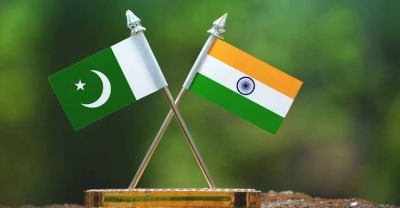By Asad MirzaIndia taking down Pakistan at the Shanghai Cooperation Organisation (SCO) meet is indicative of changing diplomatic might of India.India will not stick to fake goody words any longer.
It signals Pakistan about the need to do more to shed the tag of being a global headache on terrorism.
Coming soon after the recent Shanghai Cooperation Council’s (SCO) Defence Ministers’ Summit in New Delhi, India last week hosted the Foreign Ministers of the SCO at Goa.
The common thread between these two summits was the tough posturing by India against its two neighbours Pakistan and China.
At the Goa meeting, India’s External Affairs Minister (EAM), S.Jaishankar, revealed thatIndia had twice called out China and Pakistan at the summit for violating India’ssovereignty through their connectivity projects.
The statement was made in response to a question on the China-Pakistan Economic Corridor (CPEC), which runs through Indian territory currently under Pakistan’s illegal occupation.
Earlier, India had sort of reprimanded the Chinese Defence Minister Li Shangfu at the New Delhi meeting, on the issue of the stalled talks over the Line of Actual Control(LAC).
India’s critique of Pakistan
Pakistan’s Foreign Minister Bilawal Bhutto Zardari was in Goa to represent Pakistan at the SCO-CFM.A visit, which happened after a 12-year gap.
The last Pakistani Foreign Minister to visit India was Hina Rabbani Khar, when she mether Indian counterpart S.M.Krishna in Delhi in 2011.
However, what soured the atmosphere this time in Goa, was references made byZardari over Kashmir and Pakistan being a victim of terrorism itself.Though healso called for reviving the stalled talks.
India, in a strongly worded response to Pakistan’s overtures for talks, saidvictims of terrorism do not sit together with perpetrators of terrorism to discussterror.
Rebutting each of the points made by Zardari, EAM Jaishankar said he (Zardari)was “a promoter, justifier and spokesperson for a terrorism industry which is themainstay of Pakistan.
The tough Indian response came after the news of death offive Indian Army soldiers in a terrorist attack near the Line of Control (LoC) onFriday”.
Jaishankar said Bilawal’s suggestion to sit together and talk was “hypocritical” and said India was feeling “outraged” by the incident.
India’s stand on China
Jaishankar had a similar position on China whose readout on the bilateralbetween him and its Foreign Minister Qin Gang described the situation on the boundary as stable.
Jaishankar said that there is an abnormal position in the border areas.”Wehave to take the disengagement process forward.I have made it very clear.India-China relations will not be normal if peace and tranquillity in the border areas isdisturbed.This message was on the same lines as delivered by the IndianDefence Minister Rajnath Singh to his Chinese counterpart Li Shangfu, a fortnight ago.”
Responding to Zardari’s diatribe, Jaishankar said Bilawal’s opposition to a G-20meeting to be held in Kashmir had no basis since Pakistan was not even amember of that grouping.
On Bilawal’s opening address at the SCO conference where he said the issue of terrorism should not be used to score diplomatic points, the Minister said: “We are not scoring diplomatic points.We are exposing Pakistan.As a victim of terrorism, we are authorised to do so.We have put up with it.It speaks so much about the mindset of that country.”
He asked Pakistan to “smell the coffee” regarding its grouse about the abrogationof Article 370 as a violation of international agreements.
“370 is history.Sooner the people realise it, the better,” Jaishankar said.
Indian response to CPEC
EAM Jaishankar also took an exception at the mention of CPEC at the SCO meeting, both by Pakistan and China.
And rightly so, as SCO is a multilateral forum, not a bilateral one and further India’s adversarial stand on the CPEC has been very clear from the beginning, as it passed through the PoK.India has consistently opposed the Belt and Road Initiative and CPEC, as these projects violate India’s territorial integrity andsovereignty.
Jaishankar very clearly stated that connectivity is good for progress, butconnectivity cannot violate the sovereignty and territorial integrity of nations.
Bilawal’s overture
On his part Bilawal Bhutto Zardari blamed India’s Kashmir policy for the “frozenpeace” between India and Pakistan.The India-Pakistan relationship soured significantly after India announced the withdrawal of special powers from Jammu and Kashmir and the division of the state into two union territories in August 2019.
India has always maintained that it wants regular neighbourly ties with Pakistanwhile emphasising that the onus is on Islamabad to create a safe environment forsuch an engagement.
The tough Indian response to both Pakistan and China, mainly stems from itsexhaustion with its neighbours, who in spite of several Indian initiatives to betterrelations, prefer to stick with their age-old stands on the contentious issues,preferring not to respond positively to any Indian efforts in this regard.
The SCO meet also showed yet again that body language speaks volumes ingeopolitics and diplomacy.
The distance between the two foreign ministers whileposing for photographs was noticeably gaping.However, the cold Indiandemeanour, a departure from customary diplomatic niceties, and continuingwith its old parroting by the Pakistani Minister were more targeted at theirrespective domestic audiences.
The Indian leadership in view of the forthcoming elections in Karnataka wantedto be seen as acting tough, while the Pakistani Minister wanted to showcase hisability to rake-up old issues in the backdrop of the economic woes of Pakistan.But overall this posturing does not augurs well for friendly relations between theneighbours in the foreseeable future.
(Asad Mirza is a senior political commentator based in New Delhi.He can be contacted at www.asadmirza.in)
asad/khz/
#IndoPak #stay #Delhi # Rajnath Singh #Jaishankar #Shankar #Krishna # Jaishankar #Krishna #China #Delhi #New Delhi #Goa #Jammu And Kashmir #Jammu #Karnataka
.






